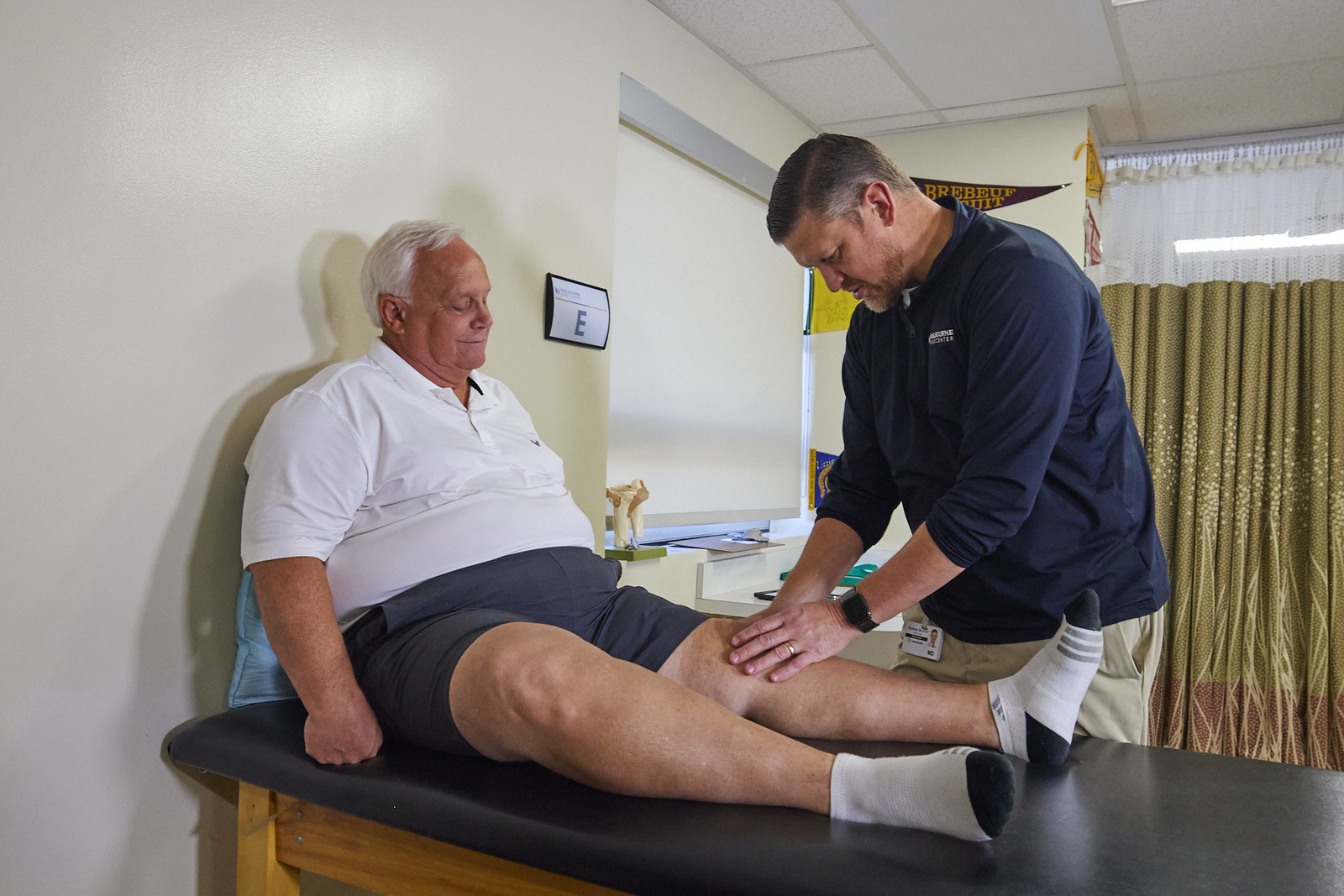
The initial focus of our office is on conservative treatment. We never want to start with a big surgery. Conservative treatment can consist of exercise, physical therapy, injections, medication, bracing, and activity modification. At times, though, conservative management can fail to get you back to your desired level of comfort or quality of life. It’s at this point we talk with patients about total knee replacement, also called total knee arthroplasty (TKA), to reduce pain and improve function and quality of life.
During knee replacement, the orthopedic surgeon cuts away the damaged bone and cartilage from your thighbone, shinbone and sometimes the kneecap and replaces them with parts made of metal and plastic. These are the implants. The implants are also called an artificial knee. The surgeon operates through a cut (incision) in your knee of about 4 to 10 inches.
Our Results
Surgeons at Shelbourne Knee Center have performed 2,300+ TKAs…and counting.
Research is a vital part of what we do at the Shelbourne Knee Center. With more than 10 years of TKA data collected, below are a few of our findings.
- Looking at the national average, up to 20% of patients are dissatisfied with their surgery. Our dissatisfaction rate is at 4%.
- At one week after surgery, more than 80% of our patients can bend their knee beyond 90 degrees and 97% can fully straighten their knee.
